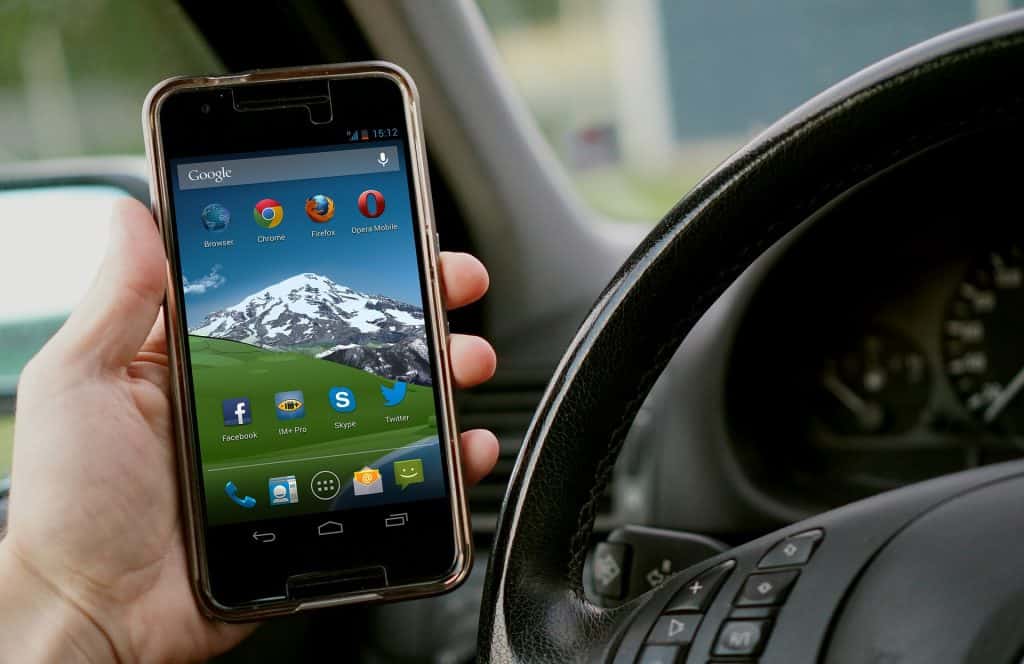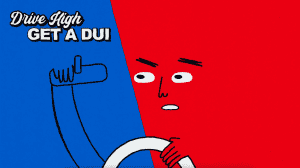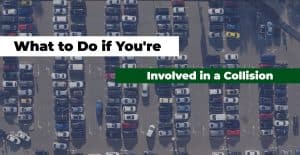April is National Distracted Driving Awareness Month. All month long, communities around the country work together to spread awareness on how to end distracted driving and keep all parties on the road safe. Reducing distractions is one of the most effective ways that motorists can prevent risks behind the wheel. While agreeing with the sentiment behind Distracted Driving Awareness Month is a great first step in making distracted driving a thing of the past, drivers will be more successful at achieving the goals that this occasion strives to meet by demonstrating their motivation through actionable measures.
If you’re a driver who wants to do your part to end distracted driving, here are a few steps you can take to help turn your intention into action.
Take the National Safety Council’s Just Drive Pledge
The National Safety Council (NSC) offers a free tool for drivers to pledge their commitment to “just drive” distraction-free. Signing your own name makes your promise public, and public commitments tend to generate more follow through. The tool also allows you to dedicate your pledge to a specific person or people, such as your parents or anyone who cares about your safety. After you sign the pledge, the NSC will send you an email with your certificate along with additional safe-driving resources.
Signing an online pledge may not seem like a significant motivator, but you can shape the experience to be more meaningful by making it a group activity that you complete with your family and friends. Additionally, you can print and frame the certificate. This allows it to serve as a visual reminder of your commitment to ending behind-the-wheel distractions.
Utilize Safe Driving Apps
The age of technology has led to an increase in apps designed to make driving without distractions easier. Apps that help with distracted driving do so in a variety of ways. Some will automatically turn off notifications so motorists are not tempted to answer calls, reply to texts, or read emails while driving. Others will assess a driver’s overall driving ability by providing reports and feedback on tendencies relating to accelerating, braking, or using the phone. A few of the apps even allow friends and family to monitor each other’s driving habits and compete to see who can obtain the highest safe-driving score.
Using tools like these can help prevent the urge to check your phone while driving. Additionally, turning your behind-the-wheel goals into a friendly competition can provide an additional incentive to keep your focus fully on your driving.
Enroll in a Defensive Driving Class
Taking a defensive driving class is an excellent way to learn advanced driving skills, including ones that focus on expert strategies for minimizing distractions. A defensive driving class helps motorists learn how to be extra vigilant and focused behind the wheel. As a result, the driver will be better equipped to recognize and avoid hazards, safely navigate emergency situations, and precisely maneuver a vehicle during situations that demand instant responses. These skills allow drivers to reduce the amount of distractions they encounter behind the wheel, and they also allow them to be better equipped to deal with elements outside of their control, such as contending with other drivers who are distracted on the road.
While these classes are often taken by teen drivers who want to build their skills outside of the foundational basics taught in traditional drivers ed, any driver who wants to enhance his/her focus on the road can benefit from signing up for one.
Speak Up as a Passenger
Peer pressure does not always have to be associated with the encouragement of irresponsible behavior. Friends and family members can be extremely persuasive in shaping positive habits too, so use your role as a passenger to speak up if a loved one is engaging in distracted driving.
Research shows that over half of drivers would change their behind-the-wheel behavior if a passenger requested that they do so. This is why it’s important to speak up if you’re in the car with a driver who is not fully focused on the road. Saying something is an important way of protecting yourself, the driver, and any other nearby parties. Of course, it can feel uncomfortable commenting on another motorist’s driving, and you don’t want to increase distraction by creating an argument. If you want to address the issue in a positive manner, here are a few approaches to take:
- Ask if the driver needs help. Offering to send a text, change a song, or modify GPS coordinates can encourage the driver to hand over the phone and focus on the road. Additionally, if the driver is distracted by other things, such as eating, you can offer to take over driving if doing so would be safe. You can also suggest pulling over at a safe location.
- Show you care. Mention how risky distracted driving is, but instead of phrasing your concerns as a lecture, try to emphasize that you care about the person. Explain that you want the driver to adopt safe driving habits because you want him/her safe and free from harm.
- Mention how you feel. By saying in a straightforward, non-aggressive manner that a driver is making you feel nervous, you can advocate for your own well-being while also helping the driver to reassess his/her driving behavior.
Take a Free Quiz to Test Your Distracted Driving Knowledge
When it comes to distracted driving, most people are well aware of obvious forms of distractions, such as texting while driving. However, there are plenty of distractions that don’t as readily come to the mind.
The CDC lists three main types of driver distractions, which include:
- Visual distractions. These distractions take a driver’s eyes off of the road, such as when a driver reads a text or looks for something in the backseat.
- Manual distractions. Manual distractions occur when a driver takes his/her hands off of the steering wheel. An example would be texting a friend back or eating a sandwich while driving.
- Cognitive distractions. This type of distraction involves drivers taking their minds off of the road. This can occur when a driver is heavily focused on a conversation with passengers or when he/she is drowsy or emotionally worked up.
As you can see, not all distractions are obvious or even illegal. For example, there is no law against driving when you’re tired or angry. Instead, it is up to you to ensure that you have the visual, manual, and cognitive abilities to fully focus on the road ahead.
Being informed of what constitutes distracted driving and what the risks of engaging in such behaviors are is a big part of minimizing factors that pull your attention away from your driving. To assess your knowledge, you can take this free quiz provided by End Distracted Driving, an organization dedicated to helping drivers stay focused on the road. If you get an answer wrong, the right answer will be provided and explained to you. By re-taking the quiz until you are able to answer all of the questions correctly, you can ensure that you are up to speed on the important facts surrounding distracted driving.
Closing Up
Hopefully these tips help you see how you can honor the important message of Distracted Driving Awareness Month. Finding actionable outlets to help reduce distractions behind the wheel can help ensure that you will be successful at preventing the risks associated with inattentive driving. By taking the NCS pledge, using safe-driving technology, considering a defensive driving course, speaking up as a passenger, and expanding your knowledge of what distracted driving involves, you can actively protect yourself and make the roads a safer place for everyone in your community.
Learn Defensive Driving Skills with DriveSafe Driving Schools!
Here at DriveSafe, we honor the important mission of Distracted Driving Awareness Month every day. Our curriculum is built around proven strategies that go well beyond the DMV requirements, as we are fully committed to doing everything we can to teach students how to be safe and fully attentive motorists. We have successfully trained thousands of students in our Colorado communities, and we are dedicated to helping every student we work with become a safe driver for life.
Whether you’re interested in a defensive driving class, traditional drivers ed courses, or one-on-one driving lessons, give us a call. Enroll in one of our classes today, or get in touch with any questions. We are happy to help!










